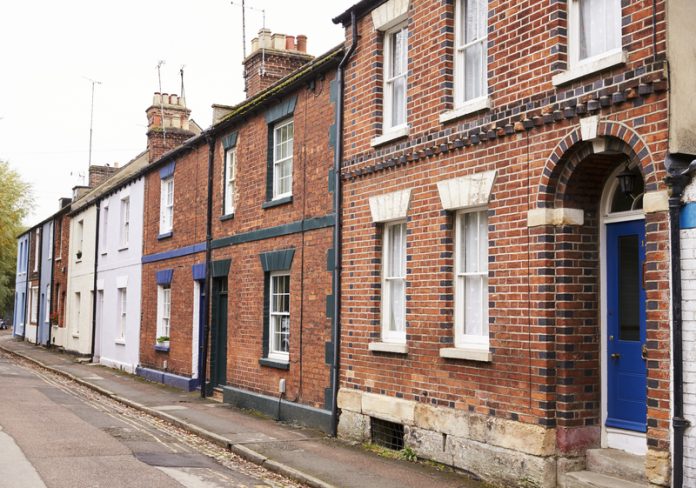Chris Bailey of Action on Empty Homes asks if in England’s housing crisis, is a distracted government the last to listen to obvious answers?
In England, it is often said that debate amongst national policymakers is out of touch with reality on the ground (let’s leave Brexit aside for a moment on the reality question). In recent years successive governments have been lambasted by social action and charitable lobbyists over the impact of what has officially been labelled ‘austerity’ and unofficially is more commonly referred to, at least by demonstrators against the policy, as ‘CUTS’.
It is partially to sidestep this binary debate that so many of us now talk the language of investment rather than expenditure. The Coalition for Community Investment (1) is thus in this space, arguing for central government to re-engage with the regeneration of areas of England variously described as ‘left-behind or ‘in decline’ – naturally we prefer the term ‘under-invested’ because we know that it is investment which always makes a difference, short-term, long-term and social impact-wise.
The Coalition for Community Investment draws together organisations from across the housing world. Members include private landlords groups, such as the Residential Landlords Association; social and affordable housing providers like the National Housing Federation, Northern Housing Consortium and National Community Land Trusts Network; and campaigning organisations like Action on Empty Homes, Crisis and Shelter; as well as representative bodies, such as the Federation of Master Builders and Locality.
In looking at these ‘under-invested’ areas of England, some commentators also draw comparisons between industrial decline, low-value property markets and Brexit support. They use this to create a narrative of ‘left behind’ or alienated protest voting. But this is by no means clear-cut; not least because in the last year two-thirds of English councils experienced rising numbers of long-term empty homes. And oddly the subject of Brexit didn’t come up when our research team visited areas of decline blighted by large numbers of empty homes. Paradoxically these are also areas experiencing housing need and with high levels of street homelessness (for all that many of these areas did vote decisively ‘Leave’, some argue as a kind of protest against marginalisation or ‘austerity’ itself).
Writing this on the day that a Cabinet Minister told Parliament that government policy was, in fact, responsible for a rise in the use of food banks, an admission variously described by commentators as ‘bonkers’ and ‘cynical’, it is striking to reflect that we are in the grip of a national housing crisis yet are building fewer social homes than at any time in recent history (or the last 70 years at any rate) (2) and have cancelled all national programmes to invest in bringing empty housing back into use.
It is not wholly unreasonable to assume that the fastest rise in numbers of long-term empty homes in England in a decade is related. Absentee investors soak up huge amounts of property in both high and low-value markets in England, yet incentives to house people in these homes are few and far between. Public policy relies on recently introduced punitive taxation but emasculates much of its impact through three factors:
- A two year wait for empty home tax premiums to kick in after it is established that a home is empty for no good reason (owners in care, homes caught in probate disputes, and other reasonable explanations being sensibly excluded from enforcement; and therefore not causing the enforcement clock to start ticking)
- A very low level of taxation on residential property due to the unwillingness of any government to grasp the nettle of revaluation of private housing stock in England, for nearly thirty years (since 1991) – years which have seen historically significant rises in value, coupled with increasing shortages of supply.
- A wide range of potential evasion routes coupled with under-resourced enforcement. For example, housing declared to be ‘second homes’ can be left unoccupied with no Council Tax Premium payable. At 252,000 these currently out-number England’s 216,000 long-term empty homes – yet many hard-pressed council officers suspect some will, in fact, simply be empty homes, though this is difficult to prove. Given that the identification of empty homes is the council’s responsibility, the one benefit of recent rises in tax premiums may be to gradually incentivise this work and even fund it: though there is no guarantee that income will be ring-fenced for such work.
A recent UCL study covered only a third of Britain but found what it called 340,000 under-used homes and proposed that simply supporting new build was unlikely to end the housing crisis. Summarising the study’s findings the Daily Telegraph reported:
“Housing worth £123 billion is barely used in Britain, researchers have calculated, and have called for a 1% tax on second homes to dissuade people from keeping hold of a mothballed property.
“A new study by University College London (UCL) concluded that building new homes is not the answer to Britain’s housing crisis as they are likely to be bought up as second homes or investments in the most popular areas. Researchers collected information from around one-third of local authorities in Britain covering 40% of the population.” (3)
The dedicated government empty homes funding which ended in 2015 was a £200 million programme which ran from 2012 and included both funding channelled both through local authorities and directly to community-based housing providers. Overall this programme brought nearly 10,000 properties into use for around £24,000 public investment per home. (4)
With all this in mind, The Coalition on Community Investment decided to poll MPs on their attitudes to the housing crisis and the growing blight of empty homes. We also asked their opinion on a range of policy interventions, many of which have already been road-tested by successful but now cancelled government programmes. (5)
Action on Empty Homes can also call on learning from its national programme of effective demonstration projects demonstrating that with financial backing empty homes can provide valuable housing for those in housing need. These community-led projects deliver housing in even the most challenging environments. These are areas the government often calls ‘low demand’, despite their lengthy social housing waiting lists and large numbers of residents housed in property, acknowledged to be inadequate or over-crowded; and often funded wholly or partially by state benefits.
The results of our MP polling were striking, at a time when homeless families in temporary accommodation have hit a ten-year high of over 82,000 (including 120,000 children); while rising levels of street homelessness are a source of national concern.
And as with some other major current policy debates we could mention, we see a striking dichotomy between national government policy and the views of Members of Parliament across the house, regardless, in most cases, of political affiliation.
ComRes polling of MPs commissioned by Action on Empty Homes for the Coalition on Community Investment shows huge cross-party parliamentary support for action on empty homes:
- 86% of MPs polled agreeing that the government should place a higher priority on tackling empty homes.
- 72% rank action to bring England’s 216,000 plus long-term empty homes back into use as one of their highest two priorities for combatting the current housing crisis.
- Over 80% also supported targeted funding for local authorities, charities and local organisations to buy, lease or refurbish empty homes.
- 68% believe landlords who own empty homes which have been vacant for more than a year should be required to bring them back into use.
- 77% support charging a council tax premium on empty homes after they have been empty for a year, rather than the current two years.
At Action on Empty Homes and the Coalition for Community Investment, we support a mixed economy approach to solving the empty homes problem. We believe in using both enhanced powers of enforcement and in funding action at local level. We call for significant targeted investment (of around £450 million) set against initial targets for delivery of 20,000 empty homes returned to use and for significant improvements in the worst-hit communities.
Action on Empty Homes also support calls for a major national programme of social housing construction but believe that returning empty homes to use is a potentially easy win for the government, not least now. As the government looks to ameliorate the impact of past decline and current uncertainty on England’s most vulnerable communities. The public agrees with us. Recent polling shows levels of support for action at similar 80% plus levels to those amongst legislators. Now we hope that the government will listen too.
References
1 Coalition on Community Investment http://www.actiononemptyhomes.org/campaign-for-community-investment/
2 Lowest social housebuilding in 70 Years link (Shelter tweet) https://twitter.com/Shelter/status/1085202196386451456
3 UCL Study quoted in The Telegraph, Feb 2019 https://www.telegraph.co.uk/science/2019/02/13/123-billion-property-barely-usedbritain-experts-call-empty/
4 House of Commons Library, Briefing Paper 3012, June 2018: Empty Housing (England) https://researchbriefings.parliament.uk/ResearchBriefing/Summary/SN03012
5 Polling results – MPs views on Empty homes and the housing crisis http://www.actiononemptyhomes.org/wp-content/uploads/2019/01/ ComRes_MPPollingResults.pdf
Chris Bailey
Community Investment Coalition Manager
Action on Empty Homes











